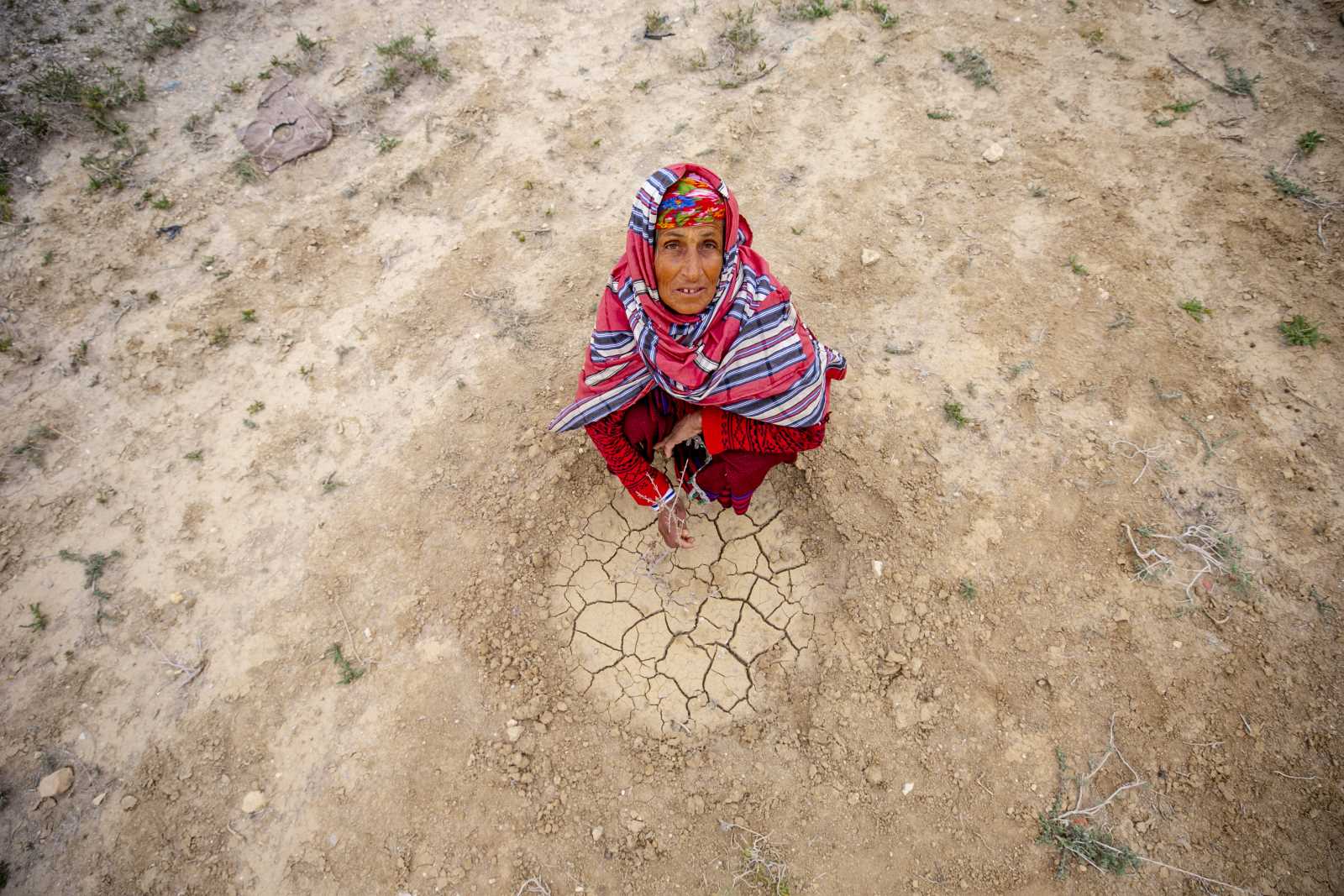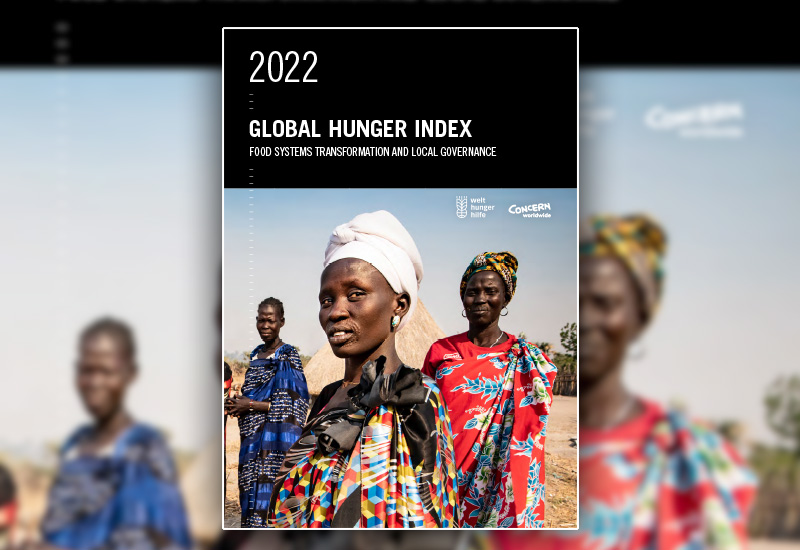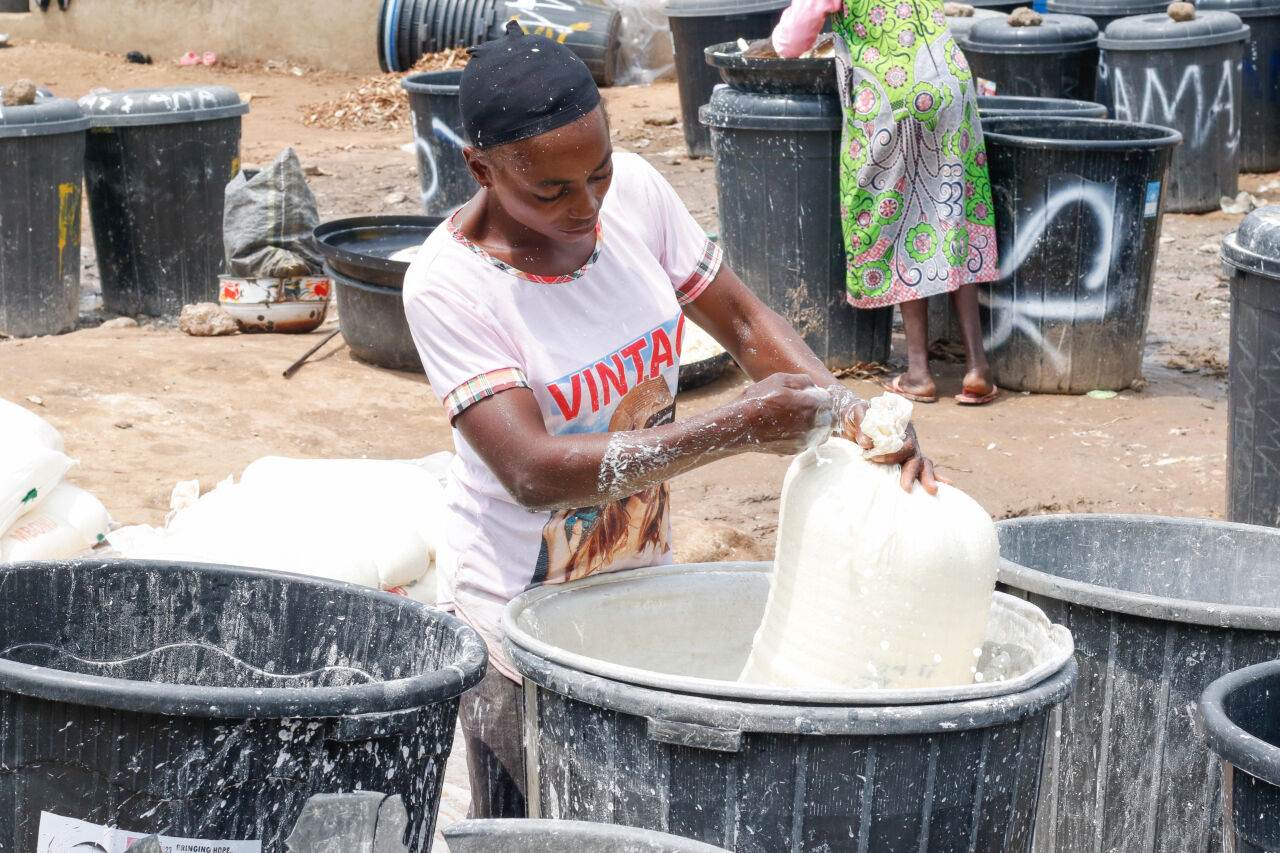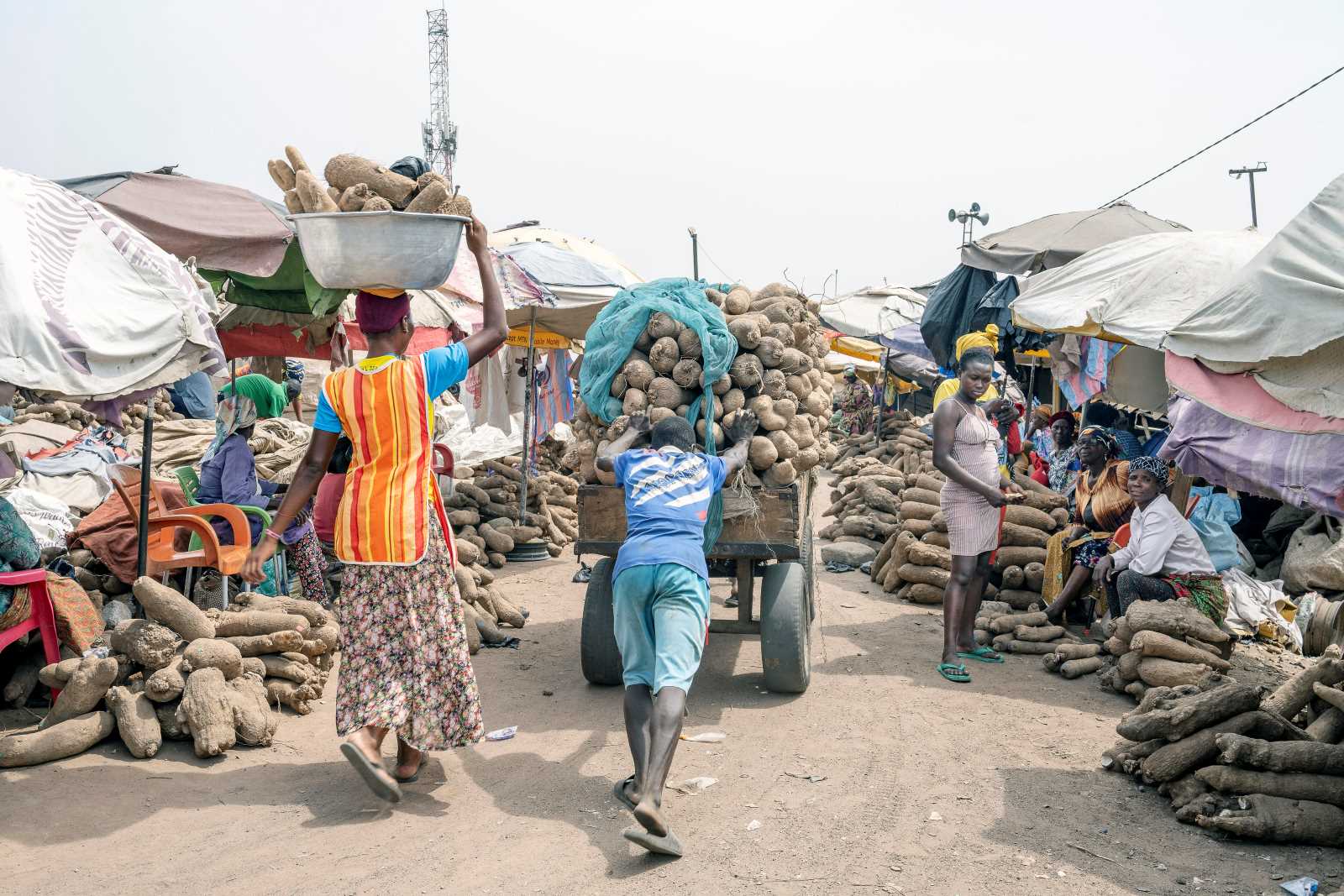Global food supply
There is enough for everyone
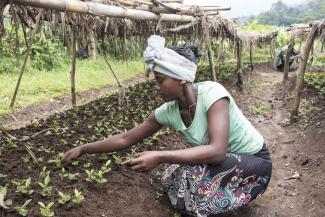
To defeat hunger, we do not simply need more food. Solutions that focus on boosting production volumes fail to address the root causes of global food crises. There has been enough to feed the world for decades.
However, the simplistic debate about increasing volumes kicked off again shortly after the start of Russia’s war of aggression on Ukraine. It was suggested that the EU should roll back all environmental requirements in agricultural policy. Yields should be enhanced by technological innovations – from digital drone farming to chemical fertilisers, to genetically modified crops.
Much of this was put into practice. The European Commission suspended environmental requirements relating to crop rotation and set-aside land (GAEC 7 and 8 – standards for maintaining land in good agricultural and environmental conditions). The G7 countries asked the World Bank to provide loans so that countries with low-income levels could buy more chemical fertiliser. Agricultural corporations subsequently made huge profits and paid record dividends to their shareholders.
It is doubly scandalous that millions of people are denied the human right to adequate food and that their predicament is then all too often exploited for selfish economic gains – whether from speculation on high grain prices or from the intensification of a climate-damaging agricultural model that devours more and more land for maize, rice, soya and wheat. The motto is invariably “the more, the better”.
That is the wrong approach. Brot für die Welt (Bread for the World), the globally active development agency of the Protestant churches in Germany, has worked since 2010 with a completely different campaign motto: “There is enough for everyone”. Even today, the total volume of harvests worldwide could feed more than 10 billion people.
According to a study conducted by the University of California in 2022, those harvests yield a statistical 5600 calories per person per day. That is more than enough to keep anyone in the world from going hungry. The UN Food and Agriculture Organization (FAO) calculates that the average person’s calorie intake is around 2600 calories a day.
Hunger is not a problem of quantity
So, if there is enough food, there can be only three answers to the question of why millions of people still suffer from hunger: harvests are not for direct food use, food fails to reach those who need it, or people cannot afford a healthy, balanced diet.
Sadly, all three answers are true. Almost half of the global harvest ends up in troughs as animal feed. Another large amount is left in the field due to logistical deficits such as a lack of storage facilities. Commercial and household food waste in industrialised countries is an additional problem. And last but not least, an increasing volume of food is used for biofuels and bioplastics, which means less food is produced for human consumption.
So instead of continuing to use chemical fertilisers to obtain record yields from ever-scarcer agricultural land so that crops (such as rapeseed or maize) can be grown for animal feed or agrofuels, global agricultural production needs to return to its original purpose: growing crops to secure the right to food.
Brot für die Welt supports a holistic approach to agricultural production: Agroecology is a system that gives farmers and consumers joint control over what is produced, how it is produced as well as by whom and for what purpose. By supporting research, digital innovation, education, gender equality and democratic participation, we promote the further development of this approach working to implement the concept of food sovereignty.
Agroecology as a crisis response
The current crises show how successfully agroecology can provide protection against them. Freedom from exposure to extreme equipment prices, proximity to target markets, ability to respond rapidly to grain shortages by sowing local varieties – these are arguments that have aroused keen interest in agroecology in agricultural, political and commercial circles.
In this context, we expect the Federal Ministry for Economic Cooperation and Development (BMZ) to strongly prioritise the agroecological elements of the BMZ core strategy “Living without Hunger – Transforming Agricultural and Food Systems” when planning and implementing new projects and activities.
It remains incomprehensible that the Federal Ministry for Economic Cooperation and Development intends to promote the production of green hydrogen-based nitrogen fertiliser in Kenya with a € 60 million loan. Urea produced in this way is still a chemical fertiliser that will cause considerable damage to soil health, climate (nitrous oxide release) and groundwater (nitrate).
Diversified agroecological systems are more resilient, especially in the face of the advancing climate crisis. Almost a third of all carbon dioxide emissions are generated by the agricultural and food industries. For this reason alone, the expansion of volume-fixated agriculture would be a step in the wrong direction.
We need the skills and knowledge of smallholder farmers, and we need to strengthen their rights, because they already bear the main burden of food production. Over the past ten years, many of their proposals have been included in the reports of experts on the Committee on World Food Security (CFS). Far too many of them have been blocked by opposition from agribusiness and agricultural exporting countries.
Agricultural production in the coming decades will be shaped in particular by declining rainfall and falling groundwater levels. Rain-fed agriculture will become more difficult. Modern irrigation techniques based on groundwater (over)use will not be able to compensate for this in the long term.
Here too, agroecological practices will be helpful. They offer solutions for making more efficient use of rainwater – for example by traditional retention techniques, agroforestry systems such as permaculture, the construction of new cisterns and the use of older, drought-resistant plants and varieties.
Political support should focus on these approaches and not on purely technological solutions aimed at increasing yields. Because there is enough for everyone.
Dagmar Pruin is President of Brot für die Welt (Bread for the World).
pressse@brot-fuer-die-welt.de

